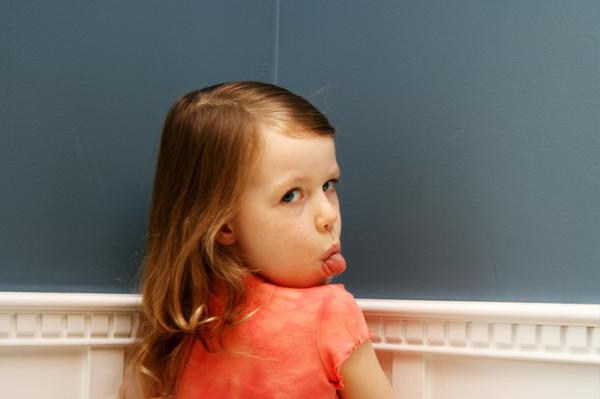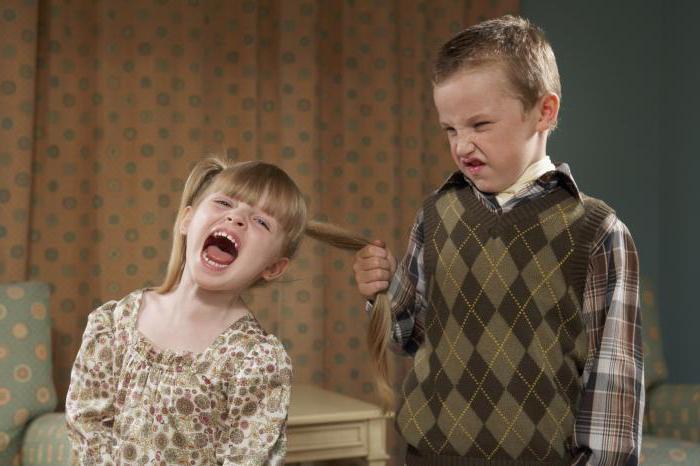Pedagogical neglect is a seriousa problem that is associated with certain deviations in the psychological development of children. They are manifested as difficulties with adaptation in the society, as well as in communicating with others. Nevertheless, do not consider this deviation as the final diagnosis, because it is quite amenable to correction.

Definition of concept
Pedagogical neglect is a term thatmeans a child's condition characterized by developmental delays, accompanied by complexities of adaptation in society and attacks of aggression. Children who have such abnormalities are often called "complex" or "difficult."
Types of pedagogical neglect
Pedagogical neglect is a problem connected with the child's behavior and its adaptation in the society. There are the following types of it:
- moral - the lack of understanding of the accepted in society norms of behavior and moral values;
- intellectual - lack of interest in learning and unwillingness to develop;
- aesthetic - the absence of the concept of beauty, as well as blurring the facets of the beautiful and ugly;
- medical - ignorance of elementary rules of hygiene or complete disregard for them;
- labor - contempt for work and unwillingness to participate in socially useful work.
It is worth noting that the above types of pedagogical neglect can occur both individually and collectively.

The reasons for pedagogical neglect
These or other problems associated with the upbringing of children do not arise from scratch. So, the following factors can serve as the reasons of pedagogical neglect:
- indifference on the part of both parents and other people who represent authority for the child;
- regular unreasonable criticism of behavior;
- constant conflicts and scandals in the family, witnessed by a child;
- manic care on the part of parents, which turns into total control of all spheres of the child's life;
- physical violence and lack of mutual respect between family members;
- illiterate work of teachers who consider humiliation or blame for the child in the presence of peers acceptable;
- inability to establish contacts with friends, as well as insults and ridicule on their part.
It is worth noting that it is with external factorssocial inactivity is associated. The pedagogical neglect of children is only to a small extent connected with their personal qualities. In general, it is a failure of parents and educational institutions.

Main manifestations of pedagogical neglect
Social and educational neglect, of course, has its manifestations. They can be of the following character:
- The problems and difficulties associated with learning,which can manifest itself in poor performance and slow mastering of information. This may be due to insufficiently developed everyday skills that can be projected onto the learning process.
- Insufficient development of such mentalprocesses, as memorization, imagination, thinking, and also some qualities inherent in any social personality. On the contrary, exacerbated are such characteristics as self-love and conflict. The mood is subject to frequent changes.
- Distorted attitude of the child to himself, and to others. As a result, communication and communication is difficult, which leaves its imprint on behavior.
Degrees of pedagogical neglect
Pedagogical neglect is a kind of deviation, which can be expressed to some extent. Thus, the intensity of manifestation can be as follows:
- The light (latent) degree is characterized by a weakdynamics, and therefore it is difficult to identify the problem. Often neglect can be confused with completely natural for this or that age whims and deviations in behavior. Also, the diagnosis of the problem is complicated by the fact that external manifestations may not be permanent, but have an episodic nature. Most often, the child feels comfortable in the family, but can not adapt in society (or vice versa).
- An initial degree is characterized by a deepening of abnormalities. Over time, they are becoming more visible and easier to diagnose.
- The expressed degree of pedagogical neglectcharacterized by the predominance of qualitative characteristics over quantitative ones. Positive properties are almost not manifested if at the previous stages of development they did not find support and reinforcement. At this stage, it becomes clear that a child can not be an independent subject and take deliberate decisions.

Principles of diagnosing pedagogical neglect
To be able to quickly and effectively solve the problem, it needs to be identified in a timely manner and thoroughly studied. Thus, the diagnosis of pedagogical neglect is carried out on the basis of the following principles:
- the study of individual characteristics must be made inseparably connected with numerous external factors;
- the conclusions should be objective, and not based on a personal relationship to the child or members of his family;
- The personality should be studied not only at this particular moment, but also in retrospect, with the possibility of making forecasts of future development;
- It is worth considering not only superficial manifestations of deviation, but to pay as much attention as possible to the search for the causes that led to this or that state of affairs;
- one of the most important principles can be considered the so-called pedagogical optimism, which consists in the mood for a positive resolution of the problem, regardless of the degree of its complexity;
- the professionalism of the researcher must consist in deep knowledge in the field of psychology, sociology and pedagogy;
- to solve the problem, it is important to work with the child not only in the general direction, but also on the principle of his dedication, taking into account his desires and interests.

Correction of pedagogical neglect
Any deviation in the development of the child requiresimmediate intervention and corrective action. Before taking any measures, it is necessary to determine the causes that led to the emergence of deviation. Direct correction can be carried out on the basis of the following methods:
- general pedagogical influence, which consists in correction of pronounced defects in behavior and character (fears, shyness, excessive excitation and other deviations);
- application of specific pedagogical techniques,which help to eliminate external manifestations of deviation (for example, nervous tics), problems in learning and development (poor mastery of the material, lack of skills, etc.), as well as character deficiencies);
- correction of behavior and perception of the world by attracting the child to active work;
- elimination of the problem by transferring to another collective or carrying out reorganization and educational work in the existing one;
- use of psychotherapeutic techniques, which are based on suggestion, persuasion, hypnosis and psychoanalysis.

The main directions of pedagogical work
Pedagogical neglect of children should notto remain without attention. At the first signs of deviations, it is worth taking measures to eliminate them. As for teachers, they should work in the following areas:
- prevention of possible offenses;
- correction of moral guidelines;
- permanent personal contacts in the form of conversations, trainings, debates and so on;
- artificial simulation of situations that carry an educational function;
- active interaction with parents and other family members;
- attraction of attention of public organizations to problem children;
- involvement of children and adolescents who are diagnosed with pedagogical neglect, to engage in extracurricular educational institutions.
Preventive measures
As in the case of a serious disease,deviant behavior of the child is much easier to prevent than to fight with unpleasant consequences. Prevention of pedagogical neglect should be carried out in accordance with the following principles:
- taking into account the personal characteristics of the child's character, as well as his environment;
- the allocation of positive aspects of the psyche and reliance on them;
- close interaction of psychology and pedagogy.
Methods of preventing pedagogical neglect can be divided into four main groups:
- directed on stimulation of cognitive activity (training in the game form, system of motivation and encouragements, artificial modeling of situations);
- directed on the organization of collective vital activity (training of labor, game and cognitive activity in a group, introduction of a competitive element);
- aimed at direct interaction with the child (communication and analysis, presentation of requirements, constructive criticism, creating an atmosphere of mutual respect and trust);
- aimed at stimulating activity (requests, demands or suggestions, activities based on a positive example, development of feelings of love, compassion, shame, etc.).

conclusions
Pedagogical neglect is a seriousa problem that can significantly complicate a child's life. Unfortunately, parents and educators do not always pay due attention to this situation, believing that over time the child will "outgrow". Nevertheless, in most cases, the problem only worsens over time. Unfortunately, if the appropriate measures are not taken in time, a socially dangerous person can grow up from a pedagogically neglected child or adolescent. With age, it is increasingly difficult to correct behavioral deviations and psychological deviations.
</ p>>








